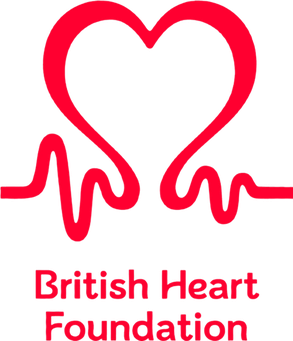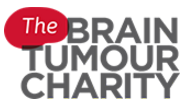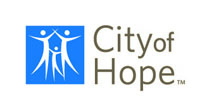Related Research Articles

The Leukemia & Lymphoma Society (LLS), a 501(c)(3) charitable organization founded in 1949, is a voluntary health organization dedicated to fighting blood cancer world-wide. The LLS mission is: Cure leukemia, lymphoma, Hodgkin's disease, and myeloma, and improve the quality of life of patients and their families. LLS funds blood cancer research around the world, provides free information and support services, and is a voice for all blood cancer patients seeking access to quality and affordable care.

The British Heart Foundation (BHF) is a cardiovascular research charity in the United Kingdom. It funds medical research related to heart and circulatory diseases and their risk factors, and runs influencing work aimed at shaping public policy and raising awareness.

The Brain Tumour Charity is a UK-based, Charity Commission registered, charity dedicated to funding research, raising awareness of brain tumours, reducing diagnosis times and providing support and information for people with brain tumours, their families and friends.
The Caring Cancer Trust is a UK-based registered charity that raises money for non-animal tested cancer research. The Charity was honoured by the University of Manchester in 2015 by induction into the President's Beyer Circle of Philanthropy for its financial support for the Manchester Viral Oncology laboratories. Caring Cancer Trust also runs annual Kids2Go Healing Holidays of Adventure for children recovering from cancer, taking groups of children referred to them by hospital paediatric oncology units in southern England to the Alps.

Susan G. Komen is a breast cancer organization in the United States.
Dana–Farber Cancer Institute is a comprehensive cancer treatment and research institution in Boston, Massachusetts. Dana–Farber is the founding member of Dana–Farber/Harvard Cancer Center, Harvard's Comprehensive Cancer Center designated by the National Cancer Institute, and one of the 15 clinical affiliates and research institutes of Harvard Medical School.
The American Association for Cancer Research (AACR) is the world's oldest and largest professional association related to cancer research. Based in Philadelphia, the AACR focuses on all aspects of cancer research, including basic, clinical, and translational research into the etiology, prevention, diagnosis, and treatment of cancer. Founded in 1907 by 11 physicians and scientists, the organization now has more than 52,000 members in 130 countries and territories. The mission of the AACR is to prevent and cure cancer through research, education, communication, collaboration, science policy and advocacy, and funding for cancer research.

The National Psoriasis Foundation (NPF) is one of the world's largest nonprofit organization serving people with psoriasis and psoriatic arthritis. The NPF provides information and services to help people manage their condition while supporting research to find a cure. In addition to serving more than 3 million people annually through patient and professional health education and advocacy initiatives, the NPF has funded more than $10 million in psoriatic disease research grants and fellowships.

City of Hope is a private, non-profit clinical research center, hospital and graduate school located in Duarte, California, United States. The center's main campus resides on 110 acres (45 ha) of land adjacent to the boundaries of Duarte and Irwindale, with a network of clinical practice locations throughout Southern California, satellite offices in Monrovia and Irwindale, and regional fundraising offices throughout the United States.
The James Whale Fund for Kidney Cancer changed its name to Kidney Cancer UK on 7 February 2016 to become the UK's leading specialist kidney cancer charity. http://www.kcuk.org.uk/ It seeks to help reduce the harm caused by kidney cancer by increasing knowledge and awareness, providing patient information, and by supporting research into the causes, prevention and treatment of the disease. The charity was founded in 2006 by the broadcaster James Whale whose experience of dealing with the disease in 2000, when he lost a kidney in the process, spurred him on to set up a charity to help others in a similar position. The Fund depends primarily on voluntary donations and in its short history has published a definitive guide to kidney cancer, set up a Patient Support Network and Careline, established an online renal nurse training programme and campaigned for access to life extending drugs for NHS kidney cancer patients. The charity is governed by a board of Trustees and has its head office in Cambridge, UK.
The Triple Negative Breast Cancer Foundation is a nonprofit organization dedicated to raising awareness of triple-negative breast cancer. The foundation supports scientists and researchers in their efforts to determine the definitive causes of triple-negative breast cancer so that effective detection, diagnosis, prevention, and treatment can be pursued and achieved.
James Lewis Abbruzzese is the Chief of the Duke Division of Medical Oncology and associate director for Clinical Research for the Duke Cancer Institute. Previously, Abbruzzese was Chairman of the Department of Gastrointestinal Medical Oncology at the University of Texas M. D. Anderson Cancer Center where he held the M. G. and Lillie A. Johnson Chair for Cancer Treatment and Research and the Annie Laurie Howard Research Distinguished Professorship. Abbruzzese is one of the world's leaders in the clinical study and treatment of pancreatic cancer.
The "war on cancer" is the effort to find a cure for cancer by increased research to improve the understanding of cancer biology and the development of more effective cancer treatments, such as targeted drug therapies. The aim of such efforts is to eradicate cancer as a major cause of death. The signing of the National Cancer Act of 1971 by United States president Richard Nixon is generally viewed as the beginning of this effort, though it was not described as a "war" in the legislation itself.
The INCTR Challenge Fund is the UK charity (Charity No. 1079181) raising funds for projects co-ordinated by the International Network for Cancer Treatment Research (INCTR) that improve the care delivered to cancer patients in developing countries and help reduce their suffering.

The Royal Osteoporosis Society (ROS), formerly the National Osteoporosis Society, established in 1986, is the only UK-wide charity dedicated to improving the prevention, diagnosis and treatment of osteoporosis. It is based in Camerton, Somerset, England.
The Pancreatic Cancer Action Network (PanCAN) is a United States-based 501(c)(3) charity that funds research, provides patient/caregiver support, conducts community outreach and advocates for increased federal research funding for those affected by pancreatic cancer.
Ovarian Cancer Research Alliance (OCRA) is a not-for-profit organization focused on ovarian cancer research, advocacy and patient support. The organization was formed in January 2016 when the former not-for-profit organization Ovarian Cancer Research Fund, which focused primarily on ovarian cancer research, combined with Ovarian Cancer National Alliance, which focused primarily on ovarian cancer advocacy and support programs, to form one organization.
Founded in 1965, the foundation's key role is to support the leading medical and health research conducted at The Queen Elizabeth Hospital and the Basil Hetzel Institute for Translational Health Research to improve the health of the South Australian community.

Kidney Cancer UK is a British charity established in 2000 to support "kidney cancer patients, their carers, medical professionals and scientific researchers."

The Children's Cancer Foundation is a registered Australian charity that supports children with cancer and their families.
References
- ↑ "Home". Lustgarten Foundation: Pancreatic Cancer Research.
- ↑ "Pancreatic Cancer Walk for Research". www.lustgarten.org.
- ↑ "Home". Lustgarten Foundation: Pancreatic Cancer Research.
- ↑ Sandomir, Richard (31 August 1999). "Marc Lustgarten, 52, Builder Of Media and Sports Empire". The New York Times– via NYTimes.com.
- ↑ "Home". Lustgarten Foundation: Pancreatic Cancer Research.
- ↑ "Charity Navigator - Rating for The Lustgarten Foundation for Pancreatic Cancer Research". Charity Navigator.